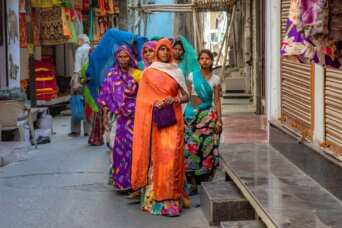- About
- Topics
- Picks
- Audio
- Story
- In-Depth
- Opinion
- News
- Donate
- Signup for our newsletterOur Editors' Best Picks.Send
Read, Debate: Engage.
| topic: | Political violence |
|---|---|
| located: | India |
| editor: | Hanan Zaffar |
The government of the western Indian state of Gujarat released 11 prisoners who were convicted of gangraping Bilkis Bano, a four-month pregnant Muslim woman, and killing seven members of her family, including her four-year-old daughter. Released on the eve of India’s 76th independence-day, the convicts had committed the crime during the 2002 Gujarat communal riots, where the state government, led by current Indian Prime Minister, was accused of targeting Muslims and remaining partial towards the majority community. Amid huge uproar over their release, the decision seems to have increased religious polarisation (which usually benefits the ruling Hindu nationalist BJP) during the upcoming regional elections in Gujarat.
The Gujarat BJP government took this decision after the Supreme Court left the matter of remission of these 11 convicts to the state government. The ruling party is accused of taking political mileage by rewarding and encouraging those accused of crimes against the Muslim minority. Leaders from the BJP have publicly supported and hailed those accused of lynching and raping Muslims on numerous occasions. In this case, the convicts were publicly welcomed and garlanded by people affiliated with the right wing and ruling party, with one BJP legislator from the state referring to them as "men of culture."
It is hard to view this particular case without taking into consideration the ever-increasing systematic and institutionalised violence against Muslims in India, which has increased manifold over the years. In the political environment India is in, it is hard to believe that these convicts would have been released had they not belonged to the majority community, and had committed a crime specifically against Muslims. This caters to the populist politics performed by the ruling party, which unfortunately has worked for it in securing votes.
The decision has left many in the country shocked, but maybe not surprised. While the move has been condemned across the spectrum, the Muslims in the region are already facing the repercussions. For instance in the Randhikpur village of Gujrat, people from the community have migrated from their homes following celebrations in the village in response to the convicts’ release. Fear and anger in the community has also increased, especially in the state of Gujarat.
According to the law, remission in cases of convicts is the purview of the government; however, given the heinous nature of the crime, their release should not have been allowed. Nevertheless, as it stands today, there seems to be a moral depravity in the country’s political system, especially regarding cases that pertain to the justice of marginalised communities.
As things stand, the government's reversal of the remission order appears impossible; activists and victims are placing their hope on the judiciary system. Numerous petitions, both political and non-political, have already been filed in India's Supreme Court against the move. While the court is yet to rule, one hopes that it will intervene to correct this wrongful precedent involving such a serious crime.
Photo by Lewis J Goetz

